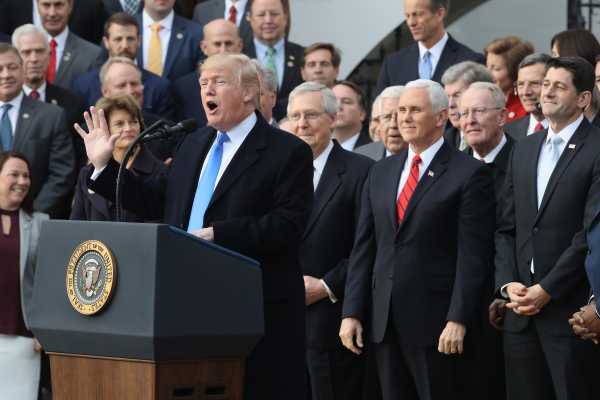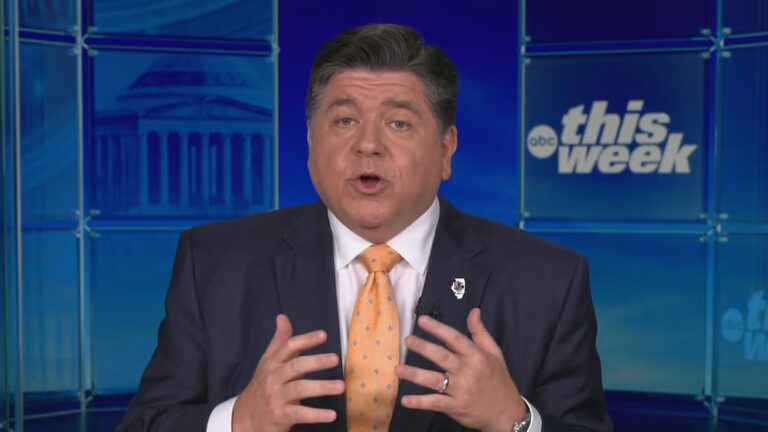
Right after the Republican tax cut bill passed a year ago, corporations made a slew of announcements pegged to the legislation, including some that gave workers one-time bonuses.
It turns out that companies making such announcements were likelier to have a history of donating to Republicans.
A recent working paper from researchers at MIT, the University of North Carolina, and the University of Michigan analyzed corporate actions following the passage of the Tax Cuts and Jobs Act in the first three months of 2018. One of the items they looked at was how the tax cuts affected companies’ public announcements of new benefits for their workers, examining nearly 200 tax cuts-related announcements made in the first quarter of 2018.
Their findings: Companies with larger expected tax savings were likelier to announce a boost for workers. So were companies with political action committees that donate to Republicans more than Democrats.
In other words, there appear to have been some economic and political calculations involved. Some companies were passing savings on to their employees, and some also appeared to have been sending a bit of a thank-you note to the GOP.
“We did find evidence that the firms whose PACs donated more to Republicans were also more likely to make these announcements,” Jeffrey Hoopes, an assistant professor of accounting at the University of North Carolina’s Kanan-Flagler Business School and one of the researchers behind the paper, said.
He cautioned that it doesn’t mean it’s necessarily “nefarious messaging” on behalf of corporations: “It could be that if you’re a Republican CEO, when tax reform comes and it’s going to help your business — when it came, you helped your employees.”
Companies that donated to Republicans were happy to make tax cuts-related announcements
The paper doesn’t get into deep detail about specific companies that had Republican-donating PACs and made employee benefits announcements, but they’re not hard to find.
Take, for example, Ryder, a transportation and logistics company based in Miami.
According to the Center for Responsive Politics, the PAC donated about $55,000 to the GOP during the 2016 election cycle, as opposed to $7,000 to Democrats. (Employees can contribute to Ryder’s PAC on a voluntary basis.)
In January 2018, about a month after the tax bill passed, Ryder announced that it would pay a one-time cash bonus to employees totaling $23 million. It attributed the decision to the tax bill, which reduced the corporate tax rate to 21 percent from 35 percent.
To be sure, a bonus is not the same as a wage increase; it’s a one-time boost, not a benefit employees will enjoy for years.
Ryder rewarded its shareholders, too. Just days later in February 2018, Ryder said it would increase its dividend — the quarterly cash amount it pays to shareholders — to $0.52 per share from $0.46 per share, a 13 percent increase. It also attributed that to the tax cuts.
Ryder has about 53 million outstanding shares, meaning the dividend increase will cost it about an extra $3.2 million each quarter. It will take shareholders less than two years to reach the $23 million bonus paid to workers.
Ryder’s decisions, like many of the companies the researchers examined, likely had both political and economic factors. Ryder’s PAC clearly has a Republican bent and may have been happy to attribute its announcements to the tax bill.
It’s also saving a lot of money under the tax cuts. In a February 2018 earnings announcement, Ryder CEO Robert Sanchez said the company saw a “significant tax benefit to reduce deferred tax liabilities” — meaning it would owe less on taxes that had not yet been paid — and said it expected earnings going forward to grow “due to a significant reduction in our effective income tax rate.”
A Ryder spokesperson pointed to Sanchez’s comments and did not comment further.
It’s been about a year since the tax cuts were passed, and it’s not yet entirely clear how its effects will play out. However, it’s likely that most of the stimulus it will deliver in measures such as growth in corporate earnings, the economy, and wages has already arrived or will soon run out. In other words, many of those bonuses for workers announced after the tax cuts are likely a one-time thing.
Sourse: vox.com






